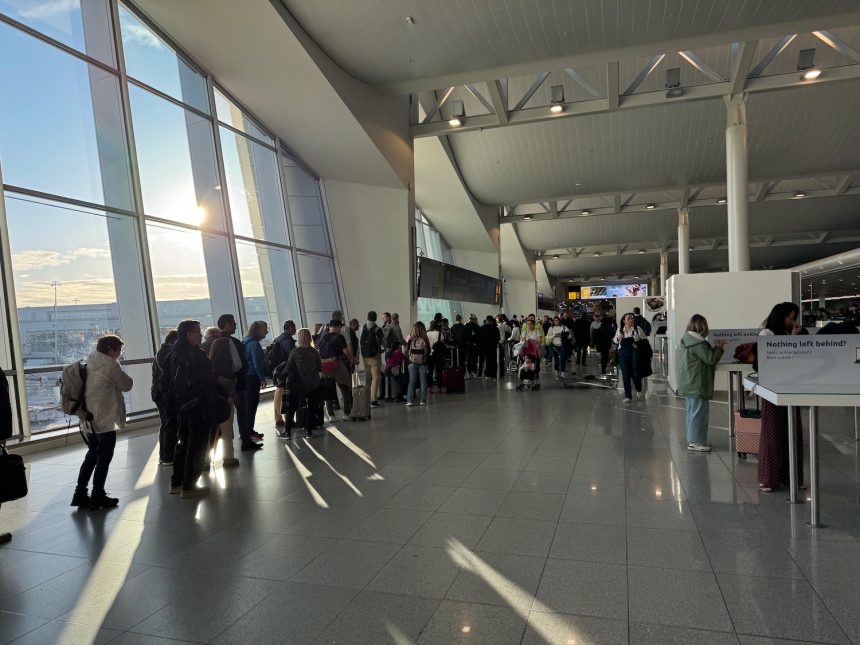A cyber-attack on a provider of check-in and boarding systems has thrown travel plans into disarray at several major European airports, including London Heathrow, Brussels, and Berlin. The breach targeted Collins Aerospace’s MUSE software, forcing airports to abandon many electronic processes and switch to manual operation.
What Happened
- The disruption began late on Friday, 19 September 2025, when a “cyber-related disruption” hit MUSE, the system used for self check-in, printing boarding passes, bag tags, and other automated passenger processing tasks.
- Airports affected say they are still able to operate—but with manual check-in, baggage drop, and boarding. This has led to long queues, delays, and cancellations.
Scale of the Impact
- Heathrow: Around 29 flights cancelled amid 651 scheduled departures.
- Brussels: One source reports nine flights cancelled, four diversions, and at least 15 delays of over an hour.
- Berlin (Brandenburg): Long lines, delays, but fewer cancellations compared to Brussels.
- Dublin and Cork in Ireland saw minor disruptions.
Who’s Responsible & What Is Being Done
- Collins Aerospace, owned by RTX, confirmed the issue lies with its MUSE platform used at “select airports.” The company says it is working to restore full functionality as quickly as possible.
- Heathrow Airport and others have implored travellers to check flight status before heading to the airport, limit early arrival times, and prepare for manual check-in when arriving.
Wider Concerns
- This incident has raised alarms about vulnerabilities in aviation’s reliance on third-party tech. A disruption in software used by multiple airports simultaneously underscores the risks of supply-chain dependencies.
- Cybersecurity experts warn that attacks on service providers could be a way for bad actors to maximize disruption. The aviation sector, like many others, may be just one hit away from serious disruption if contingency plans are not robust.
What Travellers Should Do
- If flying from Heathrow, Brussels, Berlin, or other affected airports, confirm flight status directly with your airline before heading out.
- Expect longer waits at check-in and baggage drop: bring extra time.
- Pack with flexibility: delays, cancellations, or rebookings are possible. If you need to make connections or have tight scheduling, consider contingency plans.
What’s Next
Authorities and Collins Aerospace are investigating the cause of the breach, and cybersecurity agencies in multiple countries are involved. They are assessing:
- What part of the supply chain was compromised
- Whether any data was accessed or stolen
- How to prevent similar incidents in future
The speed with which full system recovery happens will be key in minimising further disruption and restoring passenger confidence.











